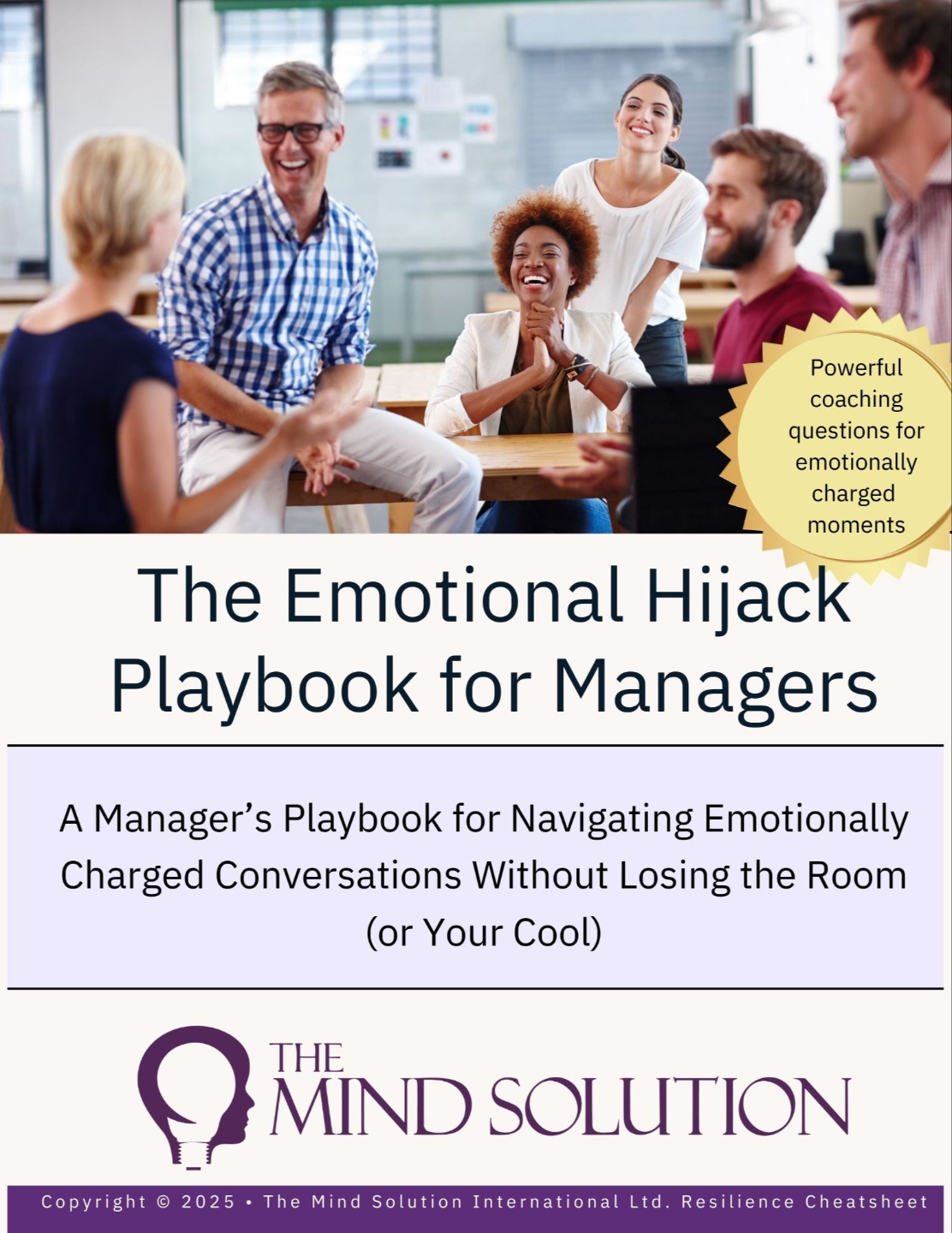The Language of Your Emotions: What They’re Really Telling You
Feb 10, 2025
Why Emotional Intelligence is Essential for Women in Leadership
Emotions are how we experience life. Without them, we wouldn’t feel excitement, exhilaration, anticipation, joy, or love. But at the same time, without emotions, we also wouldn’t feel insecurity, doubt, fear, or anxiety.
For many women in leadership, emotions like fear, self-doubt, and anxiety can feel like barriers—especially when it comes to speaking up, making bold decisions, or stepping into their full confidence.
But here’s what I want you to know:
Your emotions are simply letting you know about the quality of your thinking.
This is one of the most important aspects of emotional intelligence for leaders—understanding that emotions are not obstacles; they are indicators. They don’t define you, they don’t predict the future, and they certainly don’t control your success—unless you let them.
Let me explain.
How Overthinking Creates Self-Doubt in Leadership
Imagine you’re in a leadership meeting. Maybe it’s a board meeting, maybe it’s with your peers. You know you want to say something. You know you have valuable insights to share.
But then… anxiety creeps in. Fear kicks up.
Your mind starts racing with thoughts like:
🔹 What if I get it wrong?
🔹 What if they disagree with me?
🔹 What if I embarrass myself?
And because of those emotions, you don’t speak.
This is something I see all the time in the women I work with. And if this resonates with you, trust me—you are not alone.
But here’s what’s really happening:
That feeling of fear or doubt? It’s not telling you the truth about your capabilities.
It’s simply reflecting the quality of your thinking in that moment.
How to Overcome Imposter Syndrome in Leadership
If you’re experiencing imposter syndrome, it’s easy to believe that your emotions are confirming something about you—that maybe you aren’t as capable as others, that you shouldn’t be in your role, that you don’t have what it takes.
But those thoughts? They are not new.
They are habitual thoughts.
Conditioned thoughts.
The more you’ve thought them, the easier it is to keep thinking them—because your brain follows the path of least resistance. The neural pathways in your mind have been strengthened by years of overthinking.
And this is where most people get stuck.
They believe that to break free from imposter syndrome or self-doubt, they need to think positively.
But here’s the truth…
Why Positive Thinking Won’t Work
I get asked this question all the time:
"Sara, should I try to think positively?"
And my answer is—no.
Trying to force positive thinking when your mind is already filled with anxious, fearful, or self-doubting thoughts is like trying to slam on the brakes while driving 100 miles per hour and make a sharp right turn.
It doesn’t work (and you'd end up in the ditch!).
You can’t suddenly switch from a lot of insecure thinking to positive thinking.
In fact, the more you try to think your way out of overthinking, the worse it gets.
Because the more you try to fix your thoughts, the more thoughts you create. And before you know it, you’re completely hijacked by them.
So what’s the alternative?
The Power of the Present Moment
Here’s what I’ve learned:
When I feel calm, confident, and clear-headed—I’m not thinking.
That’s what people like Eckhart Tolle mean when they talk about the power of now.
Because when you are in the present moment, you are naturally experiencing who you really are.
✨ Who you really are is already calm.
✨ Who you really are is already confident.
✨ Who you really are is already enough.
And you don’t have to do anything to create those feelings.
They exist naturally when you’re not caught up in your thoughts.
How Women in Leadership Can Break Free from Overthinking
One of the biggest myths in leadership is that thinking more will help you find clarity.
But actually, thinking is often what gets in the way.
That’s why brainstorming sessions can go round and round with no breakthrough. But then—when you step away, go for a walk, take a shower—that’s when the answer comes.
Because wisdom doesn’t come from effort. It comes when we stop overthinking.
If you are using thought to create what you don’t want—fear, doubt, insecurity—then of course, that’s what you’re going to experience.
But when you recognise that your emotions are simply an internal guidance system—when you stop believing them as absolute truth—then you begin to break free.
Because the moment you stop giving so much attention to your thoughts, they lose their power over you.
Emotional Intelligence for Leaders: An Invitation to See This for Yourself
So here’s my invitation to you:
The next time you feel anxious, self-doubting, or fearful, don’t try to fight it.
Just notice it.
Recognise it for what it is—an indicator of the quality of your thinking.
It’s not a sign that you’re not capable. It’s not a sign that you’re not good enough. It’s just letting you know that, in this moment, you’re caught up in habitual thinking.
And like all storms, those thoughts will pass.
Because underneath all of that mental noise, you are already powerful. You are already confident. You already have everything you need.
Want to Go Deeper?
If you’re a woman in leadership who is ready to step into your power, to stop the cycle of overthinking, and to feel truly confident—I would love to support you.
📩 Let’s connect → info@themindsolution.com
The Emotional Hijack Playbook For Managers
A Manager’s Free Resource for Navigating Emotionally Charged Conversations Without Losing the Room (or Your Cool).
Perfect to use in your next one-to-one.







